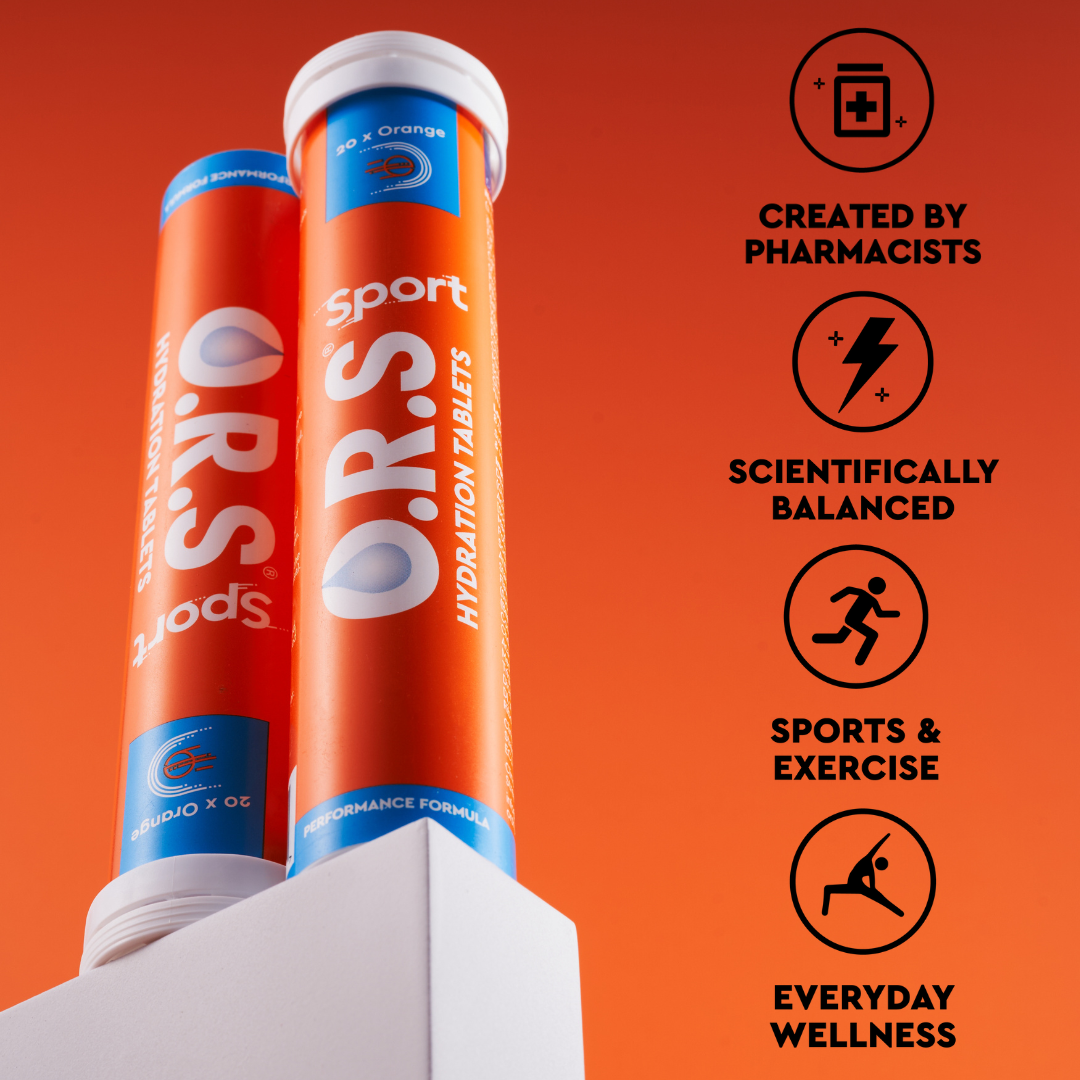
The Essential Guide to Staying Well Hydrated During Fasting
Share
How Fasting Effects Hydration
It’s currently Lent, which is the 40-day period from Ash Wednesday (this year 5 March) to Maundy Thursday, the day before Good Friday (this year 17 April). It’s a Christian tradition that represents a time of reflection and forgiveness before the Easter festival, and many Christians mark it by giving something up, or even intermittent fasting.
We are also approaching another religious festival known as Ramadan (this year from 28 February until 30 March), which is an Islamic event that is observed with fasting from dawn until sunset. Fasting is one of the five pillars of Islam and the end of Ramadan is marked with the festival of Eid ul Fitr.
Worshippers are expected to forgo food, drink, and other bodily pleasures during daylight hours for the holy month. This brings some obvious challenges in terms of staying well hydrated throughout the day. The human body consists of about 60 to 70 per cent water, and we continually lose fluids as we breathe, sweat, and go to the bathroom.
Many people don’t realise that abstaining from food, rather than just water and other drinks, makes them prone to dehydration. On average, we get about 20% of the body’s water needs through digesting the food we consume throughout the day, so this deficiency needs to be addressed to avoid unwanted side effects and even serious health complications.
Anyone observing a fasting period, whether for religious reasons or as part of a diet regimen, needs to pay careful attention to their hydration levels, because it is likely that they are losing more fluids than they are taking in. This is particularly the case for strict observers of Ramadan who abstain from drinking as well as food from dawn until dusk.
Dehydration not only makes us feel thirsty and lightheaded with an unpleasantly dry mouth, but it can also have more serious consequences. This is because we are not only depleted of water, but also of essential minerals known as electrolytes that are contained in bodily fluids.
These minerals, such as sodium, chloride, calcium, potassium and magnesium help the body to regulate fluid levels, and they cannot be quickly replaced once the balance is upset. This is because even if you drink a lot of water, your body’s cells will be less efficient at absorbing it.
Electrolytes serve other important functions in keeping the liver, heart, and muscles functioning properly. Symptoms of a possible electrolyte imbalance include mental fogginess or confusion, muscle cramps or weakness, numbness or tingling, slow or arrhythmic heartbeat, low blood pressure, vomiting or feeling sick, and tiredness and fatigue.
Dehydration over a longer period of time can cause toxins to build up in the body, which can lead to digestive problems, unhealthy looking skin, dry eyes, and stiff joints. If it is very severe, it may even cause fainting, seizures, brain damage or death.
[banner]
How Can You Stay Hydrated During A Fast?
For those who are abstaining from food only during a fast, it’s still important to take on board more fluids than usual to replace the water that would normally be extracted from food. The exact amount of water will depend on your usual diet and fluid intake, daily activity levels, and the environmental conditions, such as heat and humidity levels.
Ramadan observers who are also abstaining from drinking for several hours at a time face a more difficult challenge, and may benefit from taking electrolyte tablets to guard against a deficiency of essential minerals.
They should also drink water outside of fasting hours rather than fizzy or caffeinated drinks, because plain water helps the body to take on and retain fluid much more efficiently. Taking regular sips of water is more effective than drinking a large volume in one go, because the body can only absorb a certain amount of water at a time and the rest will pass through.
During the hours when it is permitted to eat, include plenty of water-rich foods such as watermelons, cucumber, tomatoes, celery, apples and blueberries. Vegetables and fruits are also high in fibre and will help to keep you feeling fuller for longer during the daytime. Avoid salty foods as this can upset the sodium levels in the body and lead to excessive thirst.
Limiting physical activity and going outdoors in hot weather is advisable during fasting to reduce the amount of fluids lost through sweat.








